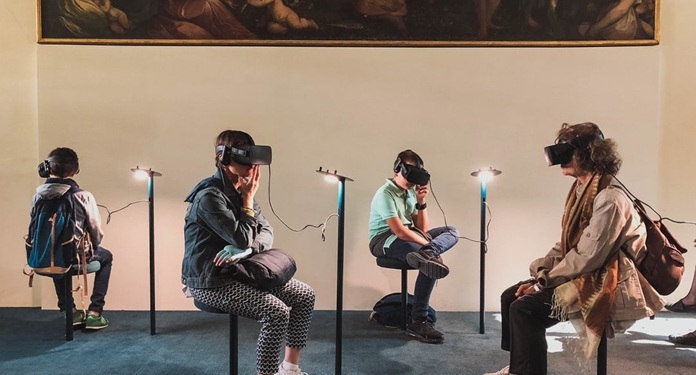Immersive experiences are revolutionizing the way we consume entertainment. Technology has allowed audiences to connect more deeply with events, shows and interactive attractions, making participation more engaging and sensorial. Whether through virtual reality (VR) or augmented reality (AR), this new approach is transforming different sectors of the industry, creating previously unimaginable possibilities for producers and consumers.
The impact of these innovations can be seen in a variety of areas, from major music festivals to land-based and online casinos, which are beginning to explore the use of immersive environments to provide new experiences for players. The ability to enter a virtual casino, with live dealers and real-time interactions, is making the sector increasingly dynamic. For those seeking this new form of entertainment, Skrill online casinos offer a convenient and safe way to enjoy digital gambling with cutting-edge technology.
With the advancement of augmented and virtual reality, the future of entertainment seems to be increasingly focused on personalization and interactivity. Major companies in the sector are investing heavily in these technologies to offer new experiences to the public, promoting innovative ways of engaging with digital content. Theme parks, live shows and video games are already at the forefront of this revolution, ensuring that the user experience is increasingly immersive and realistic.
Virtual and Augmented Reality in shows and events
Music events and festivals have been pioneers in using immersive technology to transform the audience experience. With the use of augmented reality, stages gain holographic projections and interactive visual effects that amplify the impact of performances. Virtual reality allows fans to watch live shows from anywhere in the world, using devices such as VR headsets for a fully immersive experience.
In addition to concerts, conferences and sporting events are also adopting these innovations. The possibility of watching a football match in 360 degrees or participating in a convention virtually allows for unprecedented accessibility. Companies such as Meta and Google are investing heavily in platforms that enable these interactions, making events more inclusive and engaging.
Land-based and online casinos in the immersive era
The casino industry has been following suit by integrating virtual and augmented reality elements into its platforms. Land-based casinos are already embracing interactive digital interfaces to enhance the customer experience, while online casinos are taking this innovation to the next level. With VR, players can enter three-dimensional environments that simulate real casinos, interact with other players, and even chat with live dealers.
Furthermore, augmented reality allows for the creation of more dynamic and engaging interfaces, making games even more attractive. Virtual slot machines and interactive poker tables are already available on specialized platforms, demonstrating how this technology can raise the bar for digital entertainment.
Theme parks and interactive attractions
Theme parks have always sought to provide immersive experiences for visitors, but the advent of VR and AR technology has taken this approach to a new level. Attractions such as virtual reality roller coasters offer a new perspective, combining the physical sensation of the ride with stunning digital visuals. Disney and Universal Parks have already incorporated these technologies into several attractions, allowing guests to interact with fantastic environments in real time.
Additionally, escape room experiences and interactive games in parks are becoming increasingly popular. Using augmented reality, visitors can explore interactive scenarios, solve challenges, and experience fully personalized narratives. These types of attractions have been driving the entertainment industry forward, making experiences more immersive and memorable.
The future of immersive experiences
The advancement of immersive technology suggests that entertainment in the future will be increasingly interactive and personalized. The combination of artificial intelligence with virtual and augmented reality will open up new possibilities, allowing audiences to interact with digital environments in unprecedented ways. From holographic shows to completely virtual casinos, the possibilities are endless.
As these technologies continue to evolve, immersive experiences are set to become an essential part of the entertainment industry. Audiences are seeking increasingly intense and realistic experiences, and technology is responding to this demand in impressive ways. What was once science fiction has now become reality – and the evolution of this scenario promises to transform the way we consume entertainment in the coming years.















